It is well known that plastic garbage is wreaking havoc on the environment. There is a large amount of plastic trash as a result of the mass manufacture and disposal of plastic goods, which has been shown to harm animals and natural ecosystems.
Millions of tonnes of plastic garbage enter our seas and other natural areas each year, having a startling negative impact on the ecosystem.
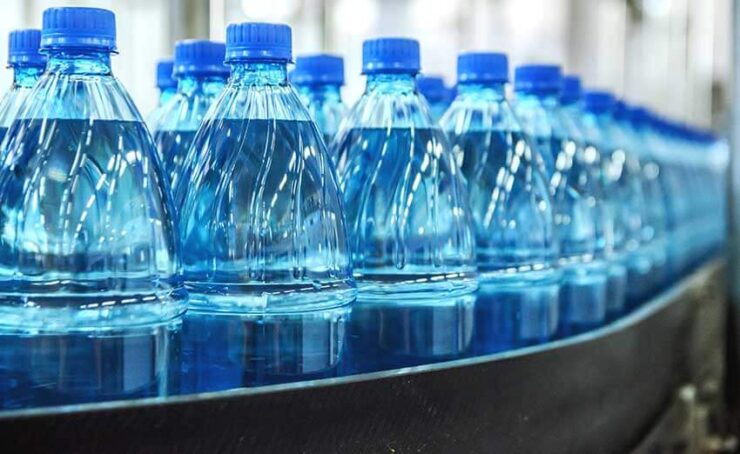
One of the biggest sources of this kind of garbage is single-use plastic items, such as water bottles and plastic straws. We continue to create, use, and dispose of these items at an alarming rate despite the worrisome statistics and news reports. It might be challenging to change our daily routines and embrace new ones, even if they are more ecologically friendly and sustainable because we are creatures of comfort.
Nevertheless, by continuing to practice our poor habits, we’re adding to the trash and pollution that’s harming our world and endangering our natural resources.
As you can see from the article title and the narrative set, we are going to focus on bottles and aluminium bottled water, and the progress on that will be revealed if you check this link.
Making the move to reusable alternatives, which include water bottles, is one method to lessen our reliance on single-use plastic. Nevertheless, not all reusable water bottles are made equal, and aluminium bottled water is a far better option for the environment when it comes to manufacturing and disposal than plastic water bottles.
For this use, aluminium is a very sustainable material. It is eternally recyclable and may be recycled indefinitely without losing any of its qualities or characteristics. This guarantees that no aluminium bottle ends up in a landfill or the ocean since every aluminium bottle can someday be converted into another aluminium bottle. In contrast, plastic bottles have a limited number of recycling opportunities before their material qualities deteriorate and they become potentially dangerous trash.
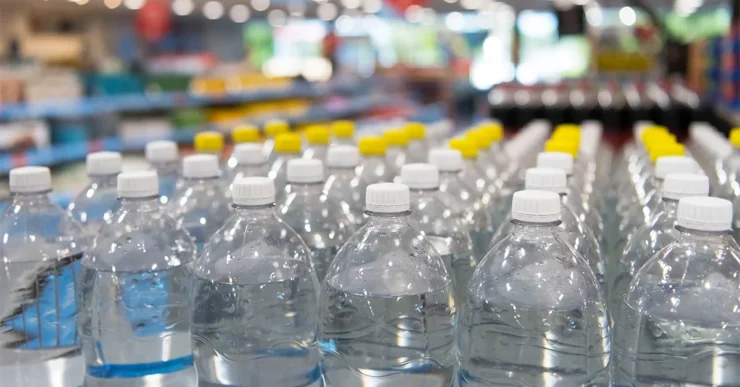
With a reduced carbon footprint at every level of manufacturing, aluminium production is also less energy-intensive than plastic manufacturing. The Aluminium Association claims that recycling aluminium “requires 95% less energy than making aluminium from raw sources”, saving enough energy to meet the yearly power demands of 4 million American homes. Compared to manufacturing new aluminium items from scratch, recycling aluminium also emits fewer greenhouse emissions.
Producing plastic has a much greater negative impact on the environment than producing aluminium when you take into consideration that it presently accounts for 8% of the world’s oil usage. A variety of other benefits of aluminium bottles over plastic bottles are also present. Aluminium bottles are also much easier to clean than plastic bottles, which can harbour bacteria and other harmful microorganisms.
If we were to list all the benefits of Aluminium vs. Plastic bottles, we can do that by telling you that they are:
- Infinitely Recyclable
Unlike plastic bottles, aluminium bottles can be recycled an infinite number of times without losing quality or properties. This means that each aluminium bottle can be reused to make another aluminium bottle, reducing waste and protecting the environment.
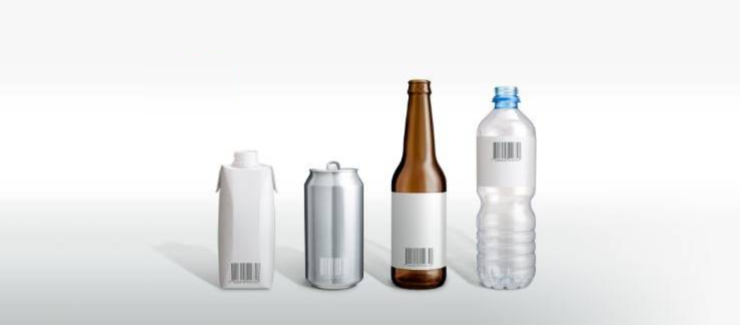
- Lower Carbon Footprint
Aluminium production is less energy-intensive than plastic production, resulting in a lower carbon footprint. Recycling aluminium uses 95% less energy than producing aluminium from raw materials.
- Durability
Aluminium bottles are more durable than plastic bottles, making them a better choice for outdoor activities and reducing the need to replace them frequently.
- Longer Lifespan
Aluminium bottles have a longer lifespan than plastic bottles and can withstand more wear and tear without breaking or splitting, resulting in less waste over time.
- Easy to Clean
Aluminium bottles are much easier to clean than plastic bottles since they do not retain odours, bacteria, or other harmful microorganisms that can be difficult to remove.
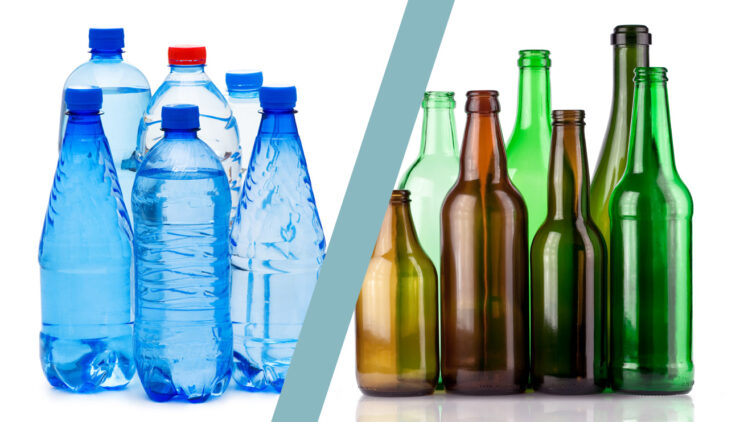
- Better Insulation
Aluminium bottles keep water colder for longer than plastic bottles, reducing the need for additional cooling and energy.
- Reduces Plastic Waste
Switching to aluminium bottled water reduces the amount of plastic waste ending up in landfills or the ocean, helping to protect the environment and wildlife.
- Promotes Sustainability
Encouraging the use of reusable aluminium water bottles promotes sustainability, reducing the need for single-use plastic bottles and supporting a more environmentally friendly approach to consumerism.
There are some disadvantages to this bottling method as well, and to be objective as possible we will list them below. There is one remark here, and you will see that it is the fact that the pros beat all the cons straight out.
- Higher Cost
Aluminium bottles can be more expensive than plastic bottles, which may make them less accessible for some people.
- Heavier Weight
Aluminium bottles weigh more than plastic bottles, which some people may find less convenient or comfortable to carry around.
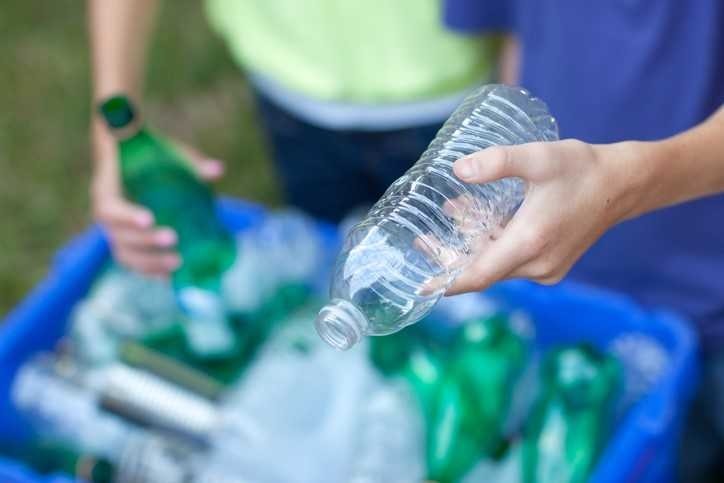
- Less Flexible
Aluminium bottles are less flexible than plastic bottles, which can make them harder to compress or store in tight spaces.
- More Sensitive to Temperature
Aluminium bottles heat up faster than plastic bottles when exposed to sunlight, which can cause the water inside to become warm more quickly.
Last but not least, there is no denying the impact of plastic trash on our globe, and protecting our ecosystem and natural resources depends on developing sustainable solutions. Replace plastic water bottles with aluminium ones as one such remedy. We can lessen plastic waste and encourage sustainability while simultaneously utilizing the many advantages of aluminium manufacture and reuse by bottling water in aluminium.
Using aluminium bottles may have a few short-term drawbacks, but overall, they are considerably outweighed by the long-term advantages for sustainability and the environment. We can take important steps toward building a better and more sustainable future for ourselves and future generations by adopting minor adjustments to our lifestyle choices, such as switching from plastic to aluminium bottled water. We can decrease waste, safeguard the environment, and advocate for a cleaner and greener world for everybody by encouraging the use of aluminium-bottled water. The earth will appreciate it if you pick a reusable aluminium water bottle the next time you grab a bottle of water.

